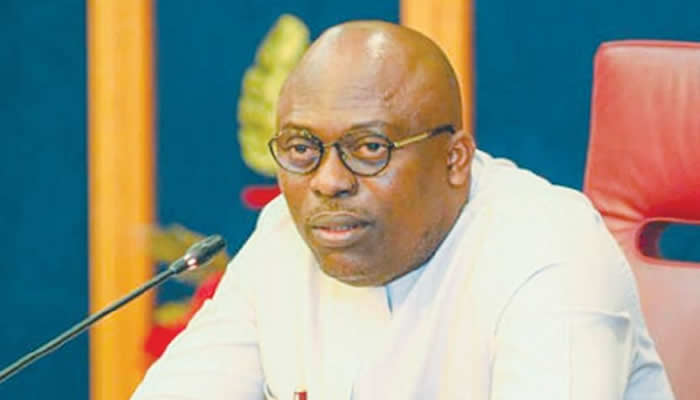The political landscape of Rivers State has been fraught with tension, stemming from a rift between Governor Siminalayi Fubara and his predecessor, Nyesom Wike. This strained relationship, characterized by accusations and counter-accusations, reached a critical juncture, prompting calls for reconciliation and strategic maneuvering from various stakeholders. A prominent voice in this unfolding drama is Alagoa Morris Eradiri, a former commissioner in Bayelsa State, who had previously urged Fubara to seek forgiveness from Wike. Eradiri’s advice, initially met with resistance from some Ijaw leaders, gained traction as the political crisis deepened, eventually leading to Fubara’s suspension and a declaration of emergency rule by President Bola Tinubu.
Eradiri’s counsel centered on the importance of humility and strategic distancing from individuals he termed “crisis merchants.” He believed that certain individuals within Fubara’s inner circle were exacerbating the situation, offering ill-advised counsel, and potentially profiting from the ongoing political turmoil. These individuals, Eradiri argued, were not genuinely invested in Fubara’s success but rather in perpetuating the conflict for their own gain. He urged Fubara to re-evaluate his relationships and prioritize those who genuinely sought a peaceful resolution. The core of his message was for Fubara to acknowledge Wike’s influence and seek reconciliation, a step that Eradiri believed was crucial for stabilizing the political climate in Rivers State.
Following Eradiri’s advice, Fubara initiated a reconciliation process by meeting with Wike and offering an apology. This action, lauded by Eradiri, marked a significant turning point in the political saga. Eradiri emphasized that this was merely the first step in a complex and delicate process, urging Fubara to remain steadfast in his pursuit of peace and to avoid any actions that could jeopardize the fragile truce. He particularly cautioned Fubara against allowing himself to be influenced by those who might attempt to undermine the reconciliation efforts. Maintaining this momentum and resisting the influence of “crisis merchants” became paramount in ensuring the long-term success of the peace process.
Beyond the immediate reconciliation with Wike, Eradiri also stressed the importance of heeding the guidance of President Tinubu, whom he described as a seasoned political strategist. Eradiri believed that Tinubu’s intervention, which included the declaration of emergency rule, provided a critical opportunity for Fubara to recalibrate his political strategy and regain control of the situation. Had Fubara adhered to the initial peace agreement brokered by President Tinubu, Eradiri suggested, the political turmoil that led to his suspension could have been averted. This second chance, facilitated by the President’s intervention, presented a crucial opportunity for Fubara to learn from his mistakes and chart a new course.
A critical element in this ongoing political drama involves managing the actions of Fubara’s supporters. Eradiri condemned a recent incident in which pro-Fubara women staged a walk-out during an event attended by First Lady, Senator Remi Tinubu. This act, Eradiri argued, was not only disrespectful but also counterproductive to the reconciliation efforts. He emphasized that such actions could be interpreted as a sign of Fubara’s insincerity and could easily derail the fragile peace process. Eradiri implored Fubara to rein in his supporters and ensure that their actions aligned with the pursuit of reconciliation. He stressed the importance of Fubara demonstrating his commitment to peace through both his words and the actions of those who supported him.
Finally, Eradiri extended his appeal beyond Fubara, calling on Wike, the suspended members of the state House of Assembly, and other stakeholders aligned with Wike to embrace forgiveness and actively participate in the reconciliation process. He recognized that a successful resolution required a concerted effort from all parties involved. Forgiveness, Eradiri argued, was not merely a passive act but an active choice that could pave the way for healing and stability in Rivers State. He urged all stakeholders to prioritize the long-term well-being of the state and to work together towards a peaceful resolution. The future of Rivers State, he implied, hinges on the collective willingness to forgive, reconcile, and move forward.














